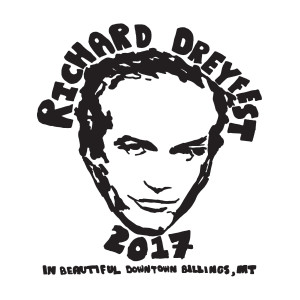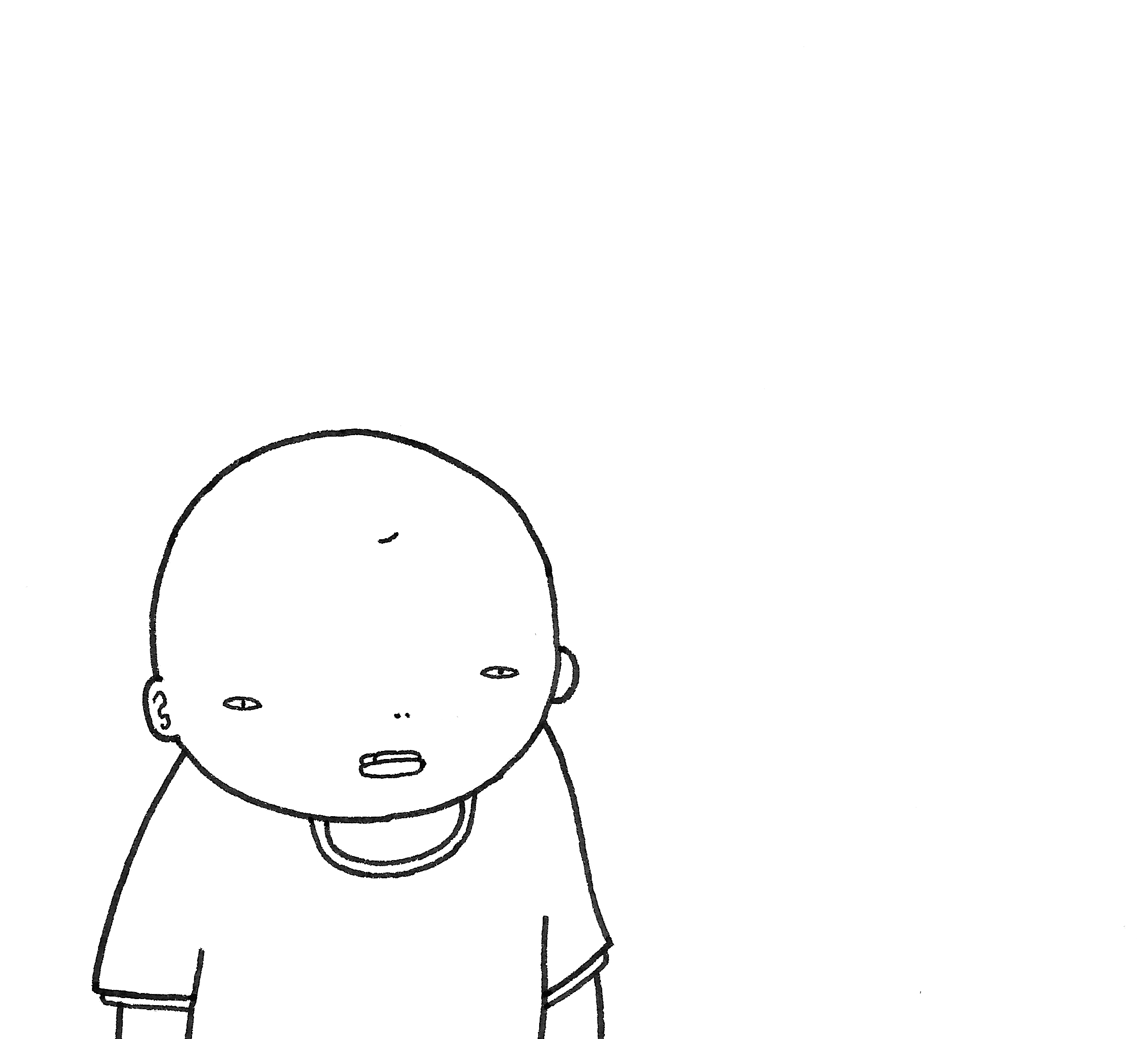
8K
Downloads
49
Episodes
Waste Radio is the audio arm of Waste Division, an art collective dedicated to the proliferation of independent (and dope!) art in the midst of all this fucking garbage.
Waste Radio is the audio arm of Waste Division, an art collective dedicated to the proliferation of independent (and dope!) art in the midst of all this fucking garbage.
Episodes

Wednesday Apr 04, 2018
Waste Books Ep. 9 - Dune (Part One)
Wednesday Apr 04, 2018
Wednesday Apr 04, 2018
Join us this time as we discuss the first half of Frank Herbert's sci-fi epic, Dune.
Overview
Ten years after Lord of the Rings, twelve years before Star Wars, and nineteen years before David Lynch’s godawful adaptation, Dune holds true as perhaps the greatest science fiction epic of all time. Frank Herbert’s masterwork of a novel (and five sequels) realizes through the mythos and mystique of the planet Arrakis (a.k.a. Dune) the fertile intersection of ecological, colonialist, feminist, Marxist, religious, and philosophical debates compacted in this prophetic, addictive, and somehow familiar journey through the most unfamiliar of worlds. Dune is heavy without pretension, enjoyable without ease, and immersive without the escapism that cheap science-fiction promises: fantasy without the reminders of why we choose to look elsewhere for answers.
The journey that readers and the characters themselves take on this hostile planet begins with Herbert’s hero Paul Atreides being initiated into the rites of a secret order as the reader too is sucked into a world full of intrigue, subterfuge, and tightly packed action. Be warned though that the initial chapters demand patience: Herbert projects a Tolkieneque universe of history and language, elaborately detailed in the work’s four-part appendix, planetary map, and the book’s “Terminology of the Imperium” referencing hundreds of words and phrases. But the payoff is certain – it’s the world’s best-selling science fiction novel (so it can’t be that difficult) and winner of science-fiction’s two most important awards: the Hugo and Nebula. But cartography and encyclopedias aside, the minutia isn’t essential to fully experiencing Dune’s full effect. The novel holds up not just in its political ponderings but magnificently as a riveting tale established in the tradition of the adventuring hero we’re all too blissfully drawn to.
Although Herbert stuffs the text with abstruse references to Islam, cybernetics, and The Decline and Fall of the Roman Empire the novel is undeniably excellent and thought-provoking. For true fans of science-fiction give it a reread. For those interested in delving into the realm of science-fiction look no farther for your opportune introduction. And for those (Waste included) just wanting a classic page-turner of a story, you’ll get that and so much more: the likes of intergalactic war, taut characterization and suspense, and a grandiose setting that replicates the cinematic visions that made the space-opera possible. Did I mention it has thousand-foot sandworms?
-Jordan Finn
Show Notes
This episode covers exactly the first half of Dune in terms of pages in the narrative section (i.e., excluding the Glossary). In other words, we read through page 235 in the 40th Anniversary Edition of the book. In other other words, we read up to the chapter that begins with the epigraph "At the age of fifteen, he had already learned silence." Is that clear as mud??
Music for this episode provided by Brooklyn punks Idaho Green, with their new track "Rancher Bones."
Produced by Phillip Griffin.

Wednesday Feb 07, 2018
Waste Books Ep. 8 - Frankenstein
Wednesday Feb 07, 2018
Wednesday Feb 07, 2018
Join us this month as we discuss Mary Shelley's seminal sci-fi/horror novel, Frankenstein.
Overview
It was one fateful summer night in the year of 1816 that young Mary Wollstonecraft Godwin found herself near Lake Geneva in the company of fellow romantic authors Lord Byron and her future husband Percy Shelley. Due to the unpleasant nature of that year’s summer, they were confined to Byron’s villa for much of their time there, reading German ghost stories and exciting their imaginations. This led to Lord Byron’s suggestion that they each write their own ghost story. From this, a monster was created.
Mary Shelley’s Frankenstein is a classic horror tale that follows the exploits of one Victor Frankenstein, a noble young gentleman from Geneva, Switzerland. At the ripe age of seventeen Victor must simultaneously cope with losing his mother to scarlet fever and leaving the nest to journey off to study at a neighboring university. In his turmoil, Victor becomes obsessed with natural philosophy, alchemy, and other practices not seen as acceptable in the academic world. Isolated in his makeshift workshop, he finds a way to reanimate a body he assembles from pieces of various types of corpses, human and animal alike. On the night his creation comes to life, he flees the scene in a panic, and the monster is left to fend for itself. Victor tries to overlook fears of what the monster may do unsupervised, and eventually his greatest fear is realized when months later he and his family are confronted by the monster, now armed with the knowledge of its creator’s misdoings.
While short in length, the novel is packed full of early feminist critiques about man’s abuse of nature and the subversion of female’s biological role in reproduction. This was during a time when women were mostly seen as care takers of the home and bearers of children. Unsurprisingly, Mary Shelley’s own success in writing as a woman during this era was a rare occurrence. These circumstances create a unique blend of horror and social commentary that feed off of each other, a technique we see in practice still today. We are currently dealing with the exponential growth of technology that threatens the extinction of many different plant and animal species. And, even two hundred years after this was published, women are still fighting for workplace equality and an end to a culture of rampant sexual misconduct.
Unlike almost every film adaptation of Frankenstein, Victor’s monster might become a sympathetic being by the conclusion of the story. This monstrous being gains an understanding of the world around it, as well as the use of language, but because of its hideous outer appearance it is hated by every human it encounters--including its creator Victor Frankenstein. Time and again, the creature seeks companionship but is met with utter rejection. With no help from even his creator, the monster responds with exceedingly violent acts against Frankenstein and his family. In the end it's hard to decide whether Victor or his monster is necessarily Bad or Good, and we are often left wondering whose actions are truly to blame for the tragic events that unfold. We eventually ask: Who's really the monster here?
Much like Bram Stoker’s Dracula, Mary Shelley’s Frankenstein has been adapted thousands of times throughout modern history and has become a cultural icon of the modern horror genre. Also much like the classic vampire tale, much of the source material is ignored and changed to fit the needs of whatever culture is viewing it. This book provides a refreshing look for anyone looking to more deeply examine the lessons that tend to be watered down in the popular retelling of the myth. It’s always good to get back to the basics, and this novel is a delightfully chilling reminder of that.
-Eric Toennis
Show Notes

Sunday Dec 17, 2017
Waste Books Ep. 7 - White Noise
Sunday Dec 17, 2017
Sunday Dec 17, 2017
Join Eric, Phil, Dan, and Cooper as they discuss Don DeLillo's spectacular novel, White Noise.
Overview
Published in 1985, White Noise tells the story of Jack Gladney, a college professor who teaches Hitler Studies at the college on the hill in the quaint little town of Blacksmith. Babette, his fourth wife (by his fifth marriage), and a collection of their children live a life characterized by trips to the supermarket, cycles of laundry, and time spent in front of the television. After a manmade environmental disaster threatens the town, the way that they relate to themselves and the world around them seems to be challenged, for a temporary period at least. Things eventually return to normal for Jack Gladney, Babette, and their brood, but they soon find themselves embroiled in a plot of back-alley pharmaceuticals.
In terms of thematic content, by any measure the novel is certainly a product of its time. Grappling with issues such as environmental destruction at the hands of mankind, the disintegration and reintegration of the family, unabashed consumerism, media saturation, and a world overdetermined by a plastic spectacle of itself, it's no miracle of timing that White Noise was released to an American public reeling under the policies of Ronald Reagan. And while all of the aforementioned were relevant issues at the time of its publication in the 80's, for those of us living in a day and age characterized by Trump, notions of alternative truth, and absolute environmental onslaught, many of the messages conveyed within White Noise are just as important in the world of today, more than thirty years later. In 2017, you could certainly find worse ways to spend your time than to read this book.
Though the book centers largely on cultural critique and satire, it gets its ḥutspâ from the virtusity of the writer himself. The prose proves formidable, and it’s not entirely impossible that it won the national book award in 1985 for this reason alone. To be fair, it’s more likely that it was selected for the story that it portrays and the message conveyed throughout its contents, rather than solely because of the way in which these are articulated, to say nothing of the fantastic sense of humor which is sure to tickle the reader from start to finish. Regardless of why it was chosen, the publication of this novel brought the work of Don DeLillo to the attention of the public at large, which, along with the debut of Wrestlemania at Madison Square Garden and the release of Rambo: First Blood Part II, might be considered by some to be a standout event of that particular year.
White Noise is a postmodern masterpiece of American literature which can be enjoyed by any poor soul who can appreciate the spectacular nature of a world in which stories of monsters and catastrophes provide a basis for most forms of popular entertainment, while the real catastrophes and monsters of this world seem to pass over the scope of our attention, uninhibited and completely beyond our recognition.
-Daniel Nichols
Show Notes
Here’s a link to a PDF of a great David Foster Wallace essay. I recommend reading all of it if you haven’t already, but at least check out the excerpt that starts at the the bottom of pg. 169 thru the top of 171.
https://jsomers.net/DFW_TV.pdf
One of my questions is something like, “What does this book say about the role that the power of the spectacle plays in our lives?”
Relatedly, another might be: “Is WN making a ‘moral’ critique of this power?”
Another yet: “If so, does it succeed, or does it fall victim to the so-called problem of satire (which itself is a kind of articulation of what we might call the problem of spectacle or detachment, etc.)?”
Some reviews, one old, one new:
http://www.nytimes.com/1985/01/13/books/delillo-noise.html
I also butchered some shit off this Wikipedia page:
https://en.wikipedia.org/wiki/Simulacra_and_Simulation
-Phil
Next month, we’re going to tackle Frankenstein by Mary Shelley. Read this classic novel along with us and remember to check out www.waste-division.org for more art shtuff.

Thursday Oct 19, 2017
Waste Books Ep. 6 - Be Here Now
Thursday Oct 19, 2017
Thursday Oct 19, 2017
Join Phil, Wendy, Eric, Dan, and Jordan this month as they talk about the trip that is Be Here Now, by Baba Ram Das.
Overview
In 1967, a disillusioned Harvard professor named Richard Albert journeyed to the foothills of the Himalayas to seek a spiritual solace the West failed to provide. Originally a lecturer in the field of psychology, Albert travelled to Mexico with fellow professor Timothy Leary, (of LSD fame) experimenting with then unacknowledged psilocybin mushrooms and aided Leary in testing and assessing the value of the psychedelic drug LSD. Never satisfied and eventually rejected by the faculty at Harvard, Albert found a lasting state of peace not through recreational drug use but the religion, philosophy, and mysticism of the East. His name change to Ram Dass is a tribute both to his guru’s influence and the importance of meditative practices in uniting with the immediacy of the universe.
Be Here Now is a record of this journey and the point of arrival, ripe with illustrated thoughts and mind-clearing guidance that feels more akin to free-verse poetry than religious cant. It is a guide for the perplexed and a stabilizing raft for those caught adrift in any psychological or existential tempests. Dass’ approach is a difficult one to explain and to fully understand one must partake in the experience, much like transcendental meditation itself. The book is structured to facilitate the mental trip, beginning with Dass’ backstory and displeasure with the West’s treatment of value and success, easing into the second section: a series of illustrations paired with words that can read as either prayers, aphorisms, or poems. The third section elaborates on the practices, some technical others playful, in living a way of life that can be more astral than material.
Dass’ handling of the subject matter oscillates between the rigid and the blithe, like the topics he handles. It’s for this reason that the reader has leeway in exploring the topics herein; one has the freedom to either dip in a toe or two from the shoreline or select total submersion. The text reads as an amalgam of everything from Daoism, Buddhism, Hinduism, Christianity, Judaism, psychedelic drug use, communal living, western literature, and more. Dass’ ultimate purpose envisions the reader to discover their own path to spiritual unity with the universe, allowing for a personalized definition for transcending the material. From the outside the book may sound like a jumble of religious foofaraw, but within the landscape changes in ways that surprises the most dismissive. Be Here Now is a definite recommendation that will at worst introduce foreign concepts not given credence, and at best change your perception forever. Turn on and tune in.
-Jordan Finn
Show Notes
Music in this episode is "Invested" from Bull Market's upcoming album, Broker.
Produced by Phillip Griffin.
Next month we'll be talking about White Noise by Don DeLillo!

Monday Aug 07, 2017
Waste Radio: Richard Dreyfest Interviews Richard Dreyfuss
Monday Aug 07, 2017
Monday Aug 07, 2017
NOTE: This fest no longer associates with Richard due to his alleged sexual misconduct,
but we did interview him before anything came to light.
We’ve got a lot to share with you about the 5th annual, all-ages, D-I-Y Richard Dreyfest, August 11th and 12th at eight venues across Downtown Billings.
In this episode, you’ll hear interviews with some of the Montana-based and out-of-state musicians, visual artists, poets, and comedians performing at this 2-day event, along with an extra deluxe, super coveted interview with the man himself.
We’re also gonna be sharing samples of the artist’s work, little vignettes of what life’s like for them in the days leading up to the festival, and more.
For more information on Richard Dreyfest, visit waste-division.org, where you can find artist interviews, discounted presale tix ($15!), and schedule information.
Produced by Brie Ripley.
Music:
"Do the Nelz" by Idaho Green
"Daydream" by Bull Market
"New Day Shine" by Noise Noise Noise
"Prairie is an Island" by Megagiant
"Pretty Well and Waisted" by Tiny Plastic Stars
"We Were Young" by Parker Brown
"AFK Pretty Girls" by Silverbow Society
"Barney's Theme" by Snow Bored
"Snow Boogie" by Snow Bored
Backseat Sessions:
"I am a Stranger" by Ty Herman
"Bully Pulpit" by Maddie Alpert
"Life" by Alex Michaels
Other stuff:
"Make Something Beautiful Before You Are Dead" by Steve Roggenbuck
"Serenade" by Edgar Allen Poe

Friday Aug 04, 2017
Waste Radio: Richard Dreyfest Interviews Richard Dreyfuss (Teaser)
Friday Aug 04, 2017
Friday Aug 04, 2017
NOTE: This fest no longer associates with Richard due to his alleged sexual misconduct,
but we did interview him before anything came to light.
This Sunday, we’ve got a podcast coming out that will feature interviews with bands, comedians, visual artists, and poets who are part of the upcoming, 5th annual Richard Dreyfest.
We’re sharing tracks from some of the three dozen bands playing this two-day, all-ages, DIY event.
Those tracks will be available for you to stream, or download so that you can start getting hyped for the fest, which is taking place August 11th and 12th in 8 venues across Downtown Billings.
We’ll also be sharing a very special interview…
We’ll have that podcast available for you to stream on Waste-Division dot org, and ready for you to download on iTunes, podbean, or wherever you get your podcasts, this Sunday.
For more information, visit our website, www.waste-division.org.
Produced by Brie Ripley.
Music:
"Do the Nelz" by Idaho Green
"Daydream" by Bull Market
"New Day Shine" By Noise Noise Noise
"Prairie is an Island" by Megagiant

Monday Jun 19, 2017
Waste Books Ep. 5 - A Wild Sheep Chase
Monday Jun 19, 2017
Monday Jun 19, 2017
In this episode we talk about Haruki Murakami's novel, A Wild Sheep Chase.
Overview
“The thing is you’re looking for something two-dimensional and not quite real. It never lasts. But you can’t expect something unreal to last anyway, can you?” The ordinary, desultory, and nameless protagonist of Haruki Murakami’s A Wild Sheep Chase is not the character one immediately wants to identify with. At times incorrigible, mostly helpless, and constantly at a loss for understanding his farrago of a life, Murakami throws our “hero” out of his mundane Tokyo life and into a phantasmagoric raft of characters, situations, and – sheep.
Accompanied by his newfound girlfriend (endowed with supernatural ears), the hapless lead meets with a nefarious rightwing organization demanding that a certain oddly marked sheep be found – or else. More schlemiel than samurai, the two then embark across the country, finding a conspiracy worth of secrets that align the sheep’s history with Japan’s checkered past. With the protagonist’s anxieties with direction and certainty, his quest for the sheep slowly becomes even more problematic and less coincidental then thought, something destined – and all in a world seemingly meaningless.
Murakami’s work grapples with fate and knowing, plumbing depths that never seem to have a tangible bottom, yet can’t help but be explored with a child’s bungling wonder. This fiction’s lack of character names and cultureless settings provide a Kafkaesque backdrop for raising universal questions about the human condition, about what it means to know someone, and if our fantasies are more real than humdrum banality.
Murakami’s tone is fitting then. His writing only reifies enough to depict surreal conversations without the specificity of most novelist’s minutia. Unpretentious and lean, the prose suits a journey one part philosophical feint into the abyss, and two parts deadpan comedy. We find a narrative replete with nuggets of the uncanny and memories of the mundane that define living’s splendor and significance.
Entrancing and attention-grabbing, A Wild Sheep Chase retains its literary quality without implementing beguiling references or long-winded descriptions. In short, it does what the novel is meant to do - utilizing the vehicle of story to foist insoluble riddles, only to toy around with the answers. Wacky and hard-boiled, comedic yet forlorn, A Wild Sheep Chase tries to mystify the demystified and concoct meaning in contradictions of the determined and happenstance. We discover a wonder embedded in Murakami’s mediocrity, but a wonder that only arrives after we count sheep and fall into a deep slumber traced by dreams.
-Jordan Finn
This episode's music features a track called "CNG" by wastoids Halfway Killed.

Saturday May 20, 2017
Waste Books Ep. 4 - Watt
Saturday May 20, 2017
Saturday May 20, 2017
In this episode we discuss Samuel Beckett's oddball novel, Watt.
Overview
Be prepared for Watt. Few novelists find the ability (or gall) to include the syncopated musical notation of three croaking frogs or a two-page description of the twenty ways four objects in a room are positioned. There are sentences written backwards, a man who eats the same meal every day, and an unseen dog that has its origins explained for longer than any other scene in the novel. This unseen dog’s story begins to feel more real than most of the surreal novel, and these moments clarify that amidst the abysmal tones and purgatorial drudgery, Beckett is trying to tell you the most important fact about life.
The story about the peculiar protagonist, Watt, is not a direct one. All that can be said of the plot is that our Watt ventures to a manor in the Irish countryside where he works for an obscure duration for obscure reasons, eventually leaving having learned nothing. Watt works for a Mr. Knott, even more enigmatic than our “hero” whose quotidian tasks epitomize the banal and tedious. The details surrounding Watt and his environs do nothing less than chronicle a prevailing sense of absurd purpose. The characters are ugly, their treatment of each other inhumane, and those considered the most sane are more vapid than the universe the audience is forced to recognize.
Heralded as the last modernist, Beckett stretches the movement to its disintegration point and exhausts the function of the narrative. He sequences the story out of order, distorts the events, enumerates catalogues worth of permutations resembling either pretzel logic or the most precise and thus insane depictions of analysis. Always, the metaphorical specter of death looms over the characters, influencing their nonsensical behaviors, the few most resistant to its terror are those most aware of the beckoning soil beneath their feet.
The mirror that Beckett lifts to our face through Watt is of an unmistakable absurdity in something unmistakably familiar, the two contingent on the other, the familiar birthing the absurd. As hopeless as Watt or Beckett appear, the two find a way to reconcile truth and existence, a means to abide with honesty and selflessness. Watt finds a way to speak of our eventual absence in the only thing more real, our presence: “For the only one can speak of nothing is to speak of it as though it were something…” the darkest iteration of affirmation in our modern times.
-Jordan Finn
Further Reading

Tuesday Apr 04, 2017
Waste Books Ep. 3 - No Country for Old Men
Tuesday Apr 04, 2017
Tuesday Apr 04, 2017
In this episode we talk about Cormac McCarthy's No Country for Old Men, relating it to the Coen Brothers' film rendition and existentialism.
Overview
The highway that is No Country for Old Men gets you lost even though the two-lane blacktop never deviates in direction. It’s just that that first wrong turn screwed everything up and turning back now is as impossible as turning back time itself.
For those who’ve seen the Coen Brothers film, the novel No Country for Old Men is just as blood-soaked and cerebral as the silver screen ever portrayed it. Only a novelist as commanding as Cormac McCarthy can juxtapose sobering meditations on determinism and entropic decay with brutal tableaus of grisly violence along with their lurid aftermath on the body and soul. Because McCarthy is such a deliberate writer, aiming for palpable precision over entertainment, the violence he depicts is rendered all the more visual, all the more real in its considerations to weighing each word in measurements of time and mass. Violence here is not the murders of a few men, it’s the medical examination of death with the reader bearing witness as if you were pumping gas across the street, the bitter taste of iron in your mouth.
Unlike the film, the novel underscores the loneliness of characters like the desperado Llewellyn Moss or the anachronous sheriff Bell ruefully looking back at his past as the future comes slamming at him. These existentialist undercurrents rise up like oceanic groundswells in the hushed moments of a firefight – a Kierkegaardian angst where a bullet between the eyes signifies more than just the end of one’s life. And then there’s the isolated terror of the film’s central antagonist, Chigurh: an entirely human force with an inhuman drive as inexorable as fate itself, whipping between the Texan counties as a sort of grim reaper hellbent on quashing man’s attempts to break away from a system of a demented (or natural) order of power, domination, and inevitability.
Perhaps the highlight of the work is McCarthy’s adroit handling of the prose. It’s as if the man is not writing a novel but crafting some sort of austere furnishing for a friend, planing and sanding the wood with a carpenter’s finesse. The words are active and direct, the sentences laid bare as sun-streaked bones, paragraphs with such a strong physical sense they feel as if one can lift them out of the page and place them on a table.
As dark as the mood and themes may be, everything is exposed and nothing is hidden, reminding one of what Stephen King once said about horror being a substitute for a far greater horror: the lack of meaning in the everyday. What’s truly frightening about NCFOM is how McCarthy redlines inhumanity not in Vietnam or Darfur but in the mid-afternoon sun of the American Heartland, the perfect setting for a case study in fate, violence, and meaning for our time.
-Jordan Finn
Further reading/listening
Partially Examined Life podcast
http://partiallyexaminedlife.com/2012/09/21/ep63-cormac-mccarthy/
New York Times review
http://www.nytimes.com/2005/07/24/books/review/no-country-for-old-men-texas-noir.html?_r=0
Music on this episode was produced by Piecemeal, a track named "Chartreuse."
